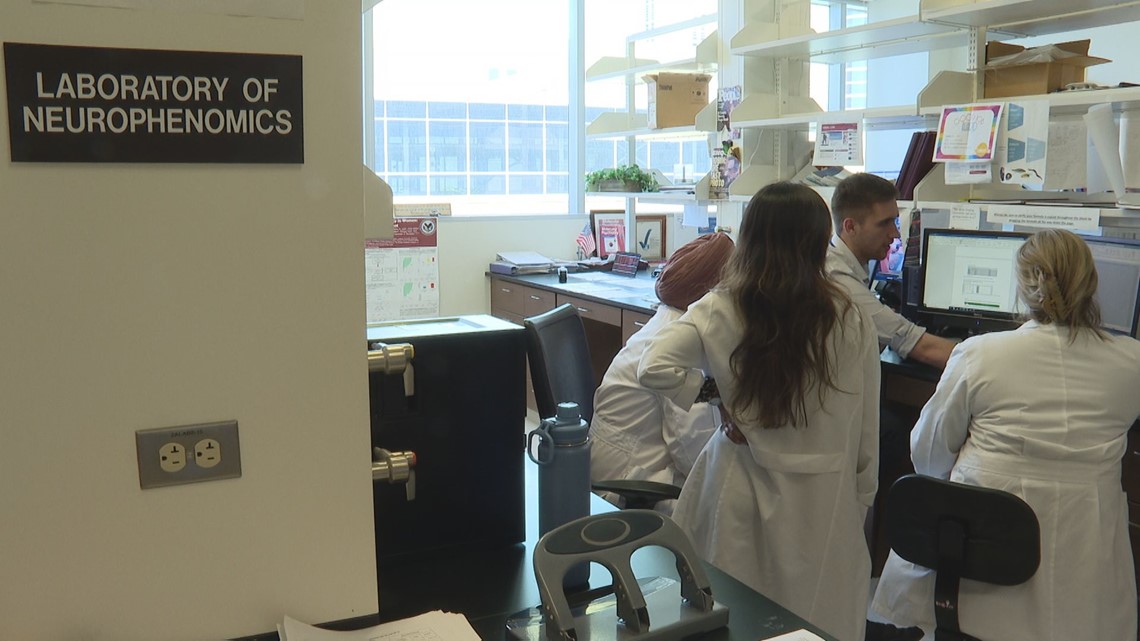INDIANAPOLIS — After 15 years of careful research and study spent working with more than 1,000 patients with mental health issues, a team of researchers at IU School of Medicine have created a blood test that can identify if people have depression and bipolar disorder, as well as connect them to the treatments that can help.
Dr. Alexander Niculescu, a professor of psychiatry and medical neuroscience at the IU School of Medicine, said getting that information into the hands of doctors is crucial.
"But it's something that helps people," he said.
For more than a decade, Niculescu and his team at the IU School of Medicine have been working to make psychiatry more precise. Their work is allowing patients to not only tell a doctor how they feel, but to establish testing that can back that up.
After years of work, they've succeeded. They've developed a way to identify depression and bipolar disorder in a patient through a blood test.
RELATED: Hoosier using her story to help those battling mental health struggles as physician assistant
"We were able to find molecules in the blood, so-called biological markers or biomarkers, that can indicate objectively whether somebody suffers from depression or bipolar disorder and can help doctors match people to the right treatment," Niculescu said.


So how does it work?
Niculescu and the research team identified 13 biomarkers that track your mood. Depending on how many of these markers are elevated or decreased, you get a score on how severe your depression is and if it's depression or bipolar disorder.
The biomarkers also help match you with which anti-depressants, mood stabilizers and other medications you should use. That report then goes right to your doctor, just like another lab test, giving them better data for diagnosing and treating patients.
“You would get these tests to go along with what you’re feeling, what you’re sharing with the doctor and that would provide some way for the doctor to have objective information, guide treatment and so on," Niculescu said. "In some ways, it’s like flying with instruments instead of flying by looking out the window of a plane."


Using this data can help diagnose people faster, according to Niculescu, and get them on the right treatments sooner, potentially saving lives.
"It will tell you it's not just in your head, it's not some sort of laziness or moral weakness. It will guide you sooner to the right treatment as opposed to trying three, four, five different antidepressants. It will help avoid hospitalizations, it will help you avoid becoming suicidal," Niculescu said.
Already, this breakthrough blood test is being utilized. It's available as ordered by doctors through an early access program.
Niculescu said it's a slow process for the small team here, taking three to four weeks to get results back. But the data coming in provides meaningful results for those patients seeking answers and help.
"We want to make it better for the patients, obviously that's the main goal," said Niculescu. "We also want to make it easier for the doctors to do their job."
He said they're now working to streamline the process, making it faster and more accessible as well as more affordable. Currently, the test is only offered out of pocket for patients, but Niculescu said he wants to see it covered for patients so more people can access this data.
"That was always the mission, get this into people's hands," Niculescu said.
What other people are reading:

